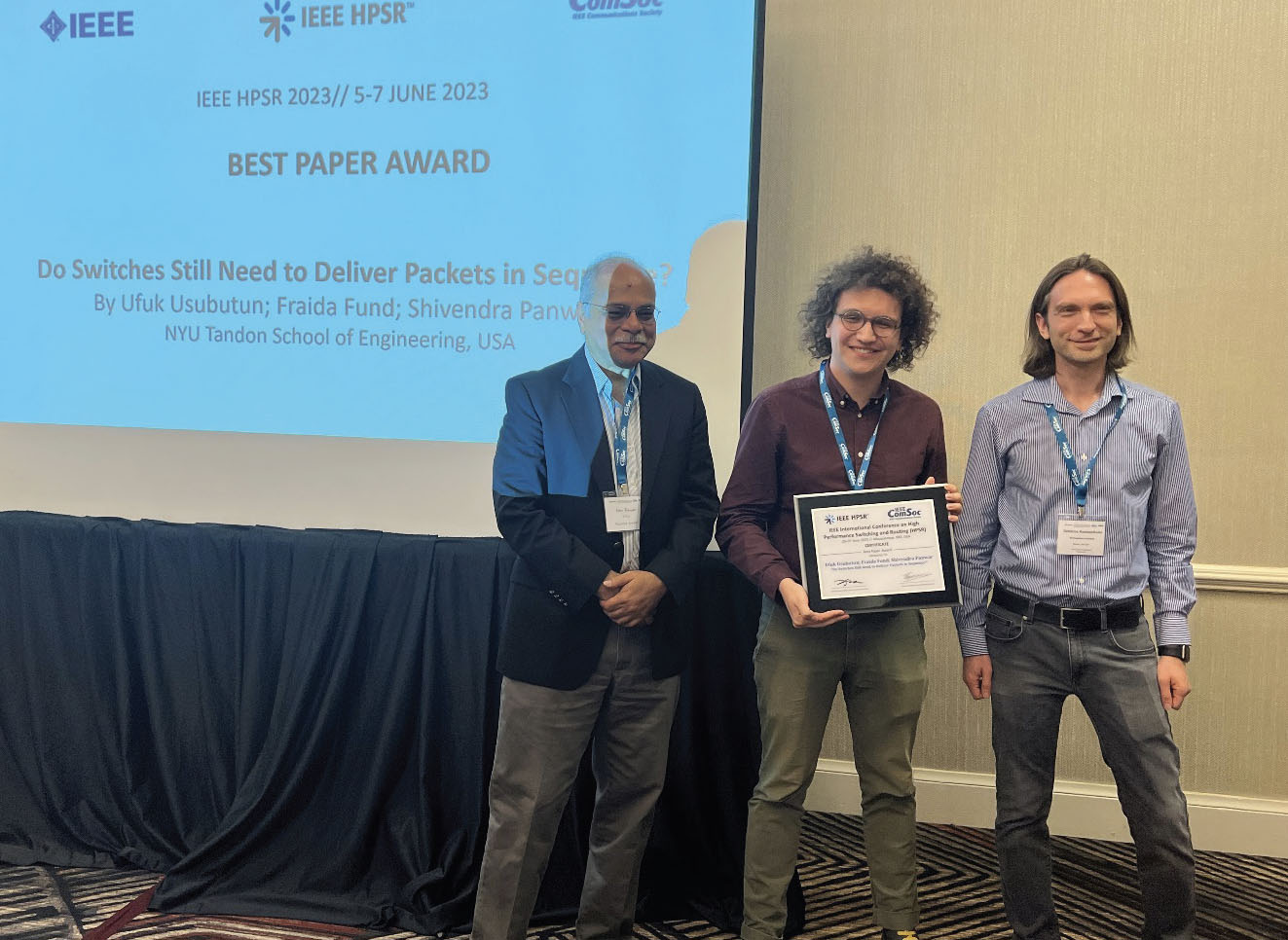The 24th IEEE International Conference on High-Performance Switching and Routing (IEEE HPSR 2023) held in Albuquerque, New Mexico, USA, from June 5 to 7 culminated with the prestigious Best Paper Award bestowed upon the work titled “Do Switches Still Need to Deliver Packets in Sequence?” authored by Ufuk Usubutun, Fraida Fund, and Shivendra Panwar from New York University & Tandon School of Engineering.
Internet switches become harder and costlier to build for higher line rates and switch capacities. In-sequence delivery of packets has traditionally been a constraint on switch designs because TCP loss detection was considered vulnerable to out-of-sequence arrivals. For this reason, extremely efficient and simple designs, such as the Load Balanced Birkhoff-von Neumann Switch, were considered impractical. The research reevaluates this constraint considering modern TCP implementations with loss detection algorithms like Recent Acknowledgment (RACK) that are more resilient to out-of-order arrivals. In a set of testbed experiments representative of wide area core networks, the research evaluates the performance of TCP flows traversing a load balanced switch that reorders some packets within a flow. The findings indicate that widely deployed and standard TCP implementations of the last decade achieve similar performance when traversing a load balanced switch as they do when there is no reordering. Furthermore, it also verifies that an increase in the line rate leads to favorable conditions for time based loss detection methods, such as the one used in RACK. If further validated, these results suggest that switch designs that were previously thought to be unsuitable can potentially be utilized, thanks to the relaxation of the in-sequence delivery constraint.
Source: https://hpsr2023.ieee-hpsr.org/
